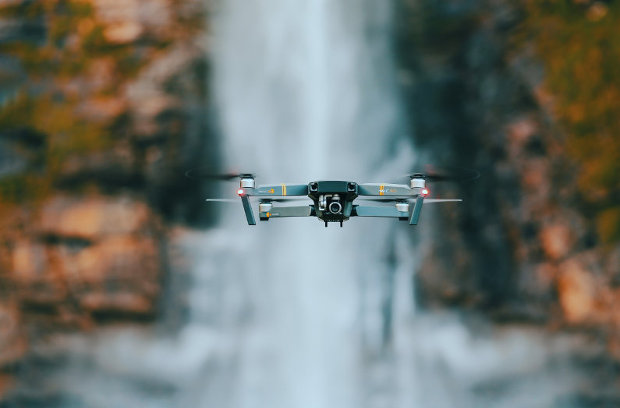The versatility of drones is immense when it comes to accessing areas that were impossible or difficult to access before. The professional drone pilots that work with top drone companies and the military are nothing short of incredible. There are even drone racing leagues that can be viewed on various channels online and on television.
Drones have grown in personal usage popularity although there are some unfortunate amateurs that break their drones on the first flight. The ability to capture a beautiful view without putting yourself in peril has taken videography and photography to the next level. Commercial usage of drones is growing due to the incredible amount of ground that can be covered. Surveying an area has now become far more accurate and rapid due to drone imaging technology.
Imaging is a huge aspect of drone usage but so is the inspection of assets such as transmission and distribution lines, bridges or other areas of infrastructure. Accidental falls from heights are the main cause of death in construction workers. Doing a final inspection from a height can lead insurance costs for a business owner to skyrocket. Drone inspection helps mitigate risk which makes a worksite far safer. Inspecting a road is a perfect example as an inattentive driver can lead to the deaths of workers.
Pipelines can take hundreds of hours to inspect manually while presenting danger. The last thing anyone wants is chemicals to injure you or impact your health long-term. The fact that thermal imaging can be done on the pipeline makes it easier to find cracks or holes. Not to mention that these need to be scaled and can be quite slippery for an individual to traverse.
Adopting a comprehensive drone program as part of safety inspections has proven very effective for many industries. The number one benefit is that safety is improved when compared to more traditional methods. Additionally a drone inspection can be carried out quicker, and if the inspection is of an industrial plant then production does not have to be stopped for as long. The ability to inspect an industrial plant without stopping production pays for the drone inspection in itself. Today’s world is all about productivity and the bottom line which has led a number of industries to investigate the usage of drones.
Drones can also be used to assess natural disaster damage, which tends to be easier, quicker, and safer than teams on the ground. Drones can provide real-time footage for rescue teams, and help find people in distress. Infrastructure inspection during this time can be lifesaving as a downed electrical line can be deadly. The last thing anyone wants is more lives ruined after a natural disaster as the recovery process is already difficult enough.

Saving Money in the Process
Safety is most important in the workplace only to be followed by profit margins. Drone usage for inspections and a number of other areas can save time and money. Staying on schedule for a project is far easier when drones are being used to inspect an asset, rather than every measure that would need to be in place to physically scale and inspect a structure.
Solar farms are something that need to be inspected to ensure they are working efficiently and no panels are overheating. Doing this through thermal imaging can help make solar power more efficient. The ability to repair a panel that is not working at full capacity will help maximize the ROI on the panel. Improving clean energy is just the beginning as efficiency has always been a concern of critics of natural energy.
Drones are a part of the future that we need to get used to in a variety of areas. With Amazon testing out drone delivery, it could only be a matter of time before we see drones daily if we do not already. Drones improve the safety of a number of inspections and will continue to be adopted internationally. Finding a top company to assist with an inspection with licensed drone pilots, which is required for commercial use is imperative. FlyGuys can assist with your drone inspection needs and can provide a top drone pilot for your project/inspection.








